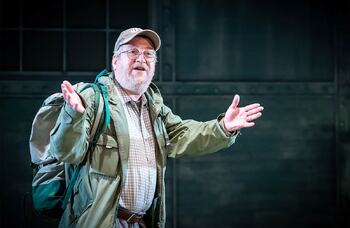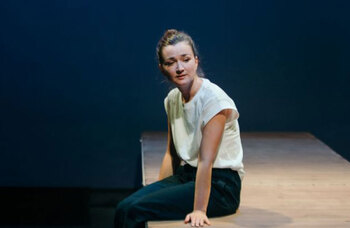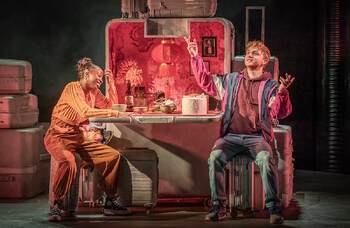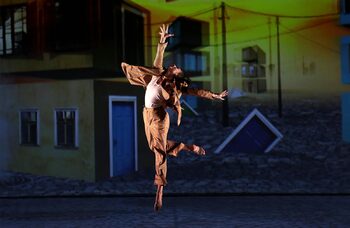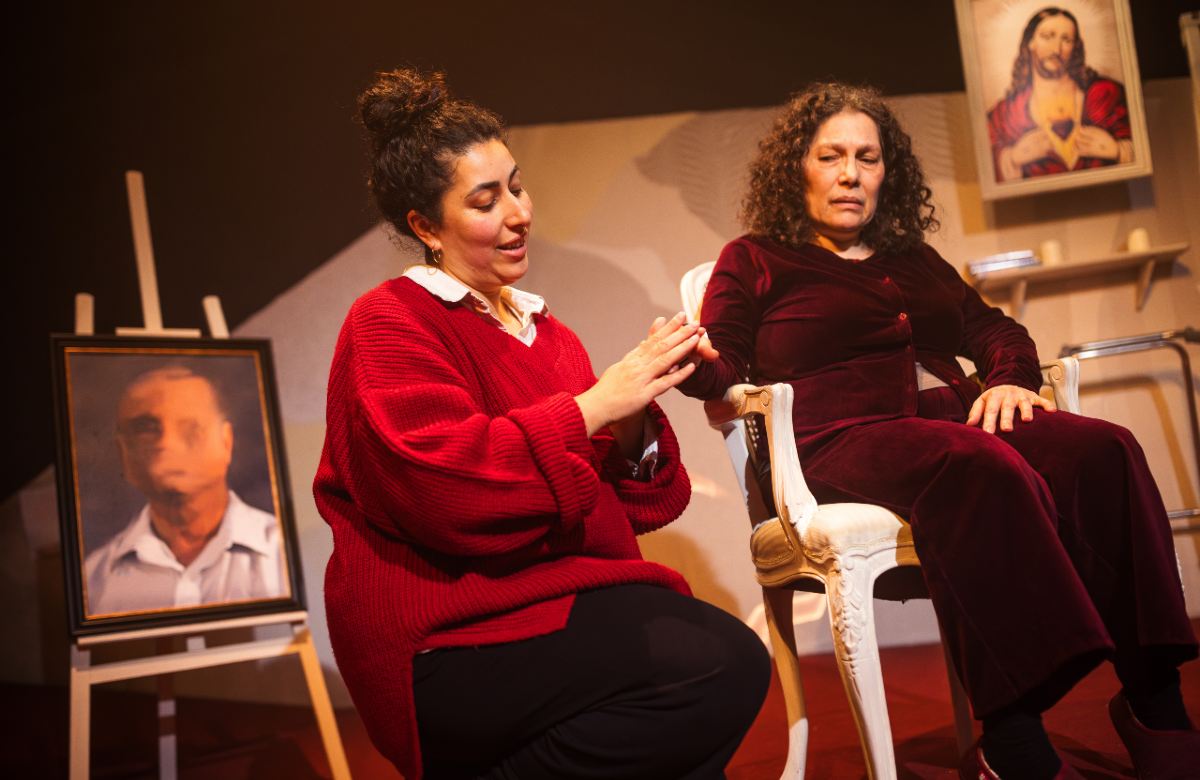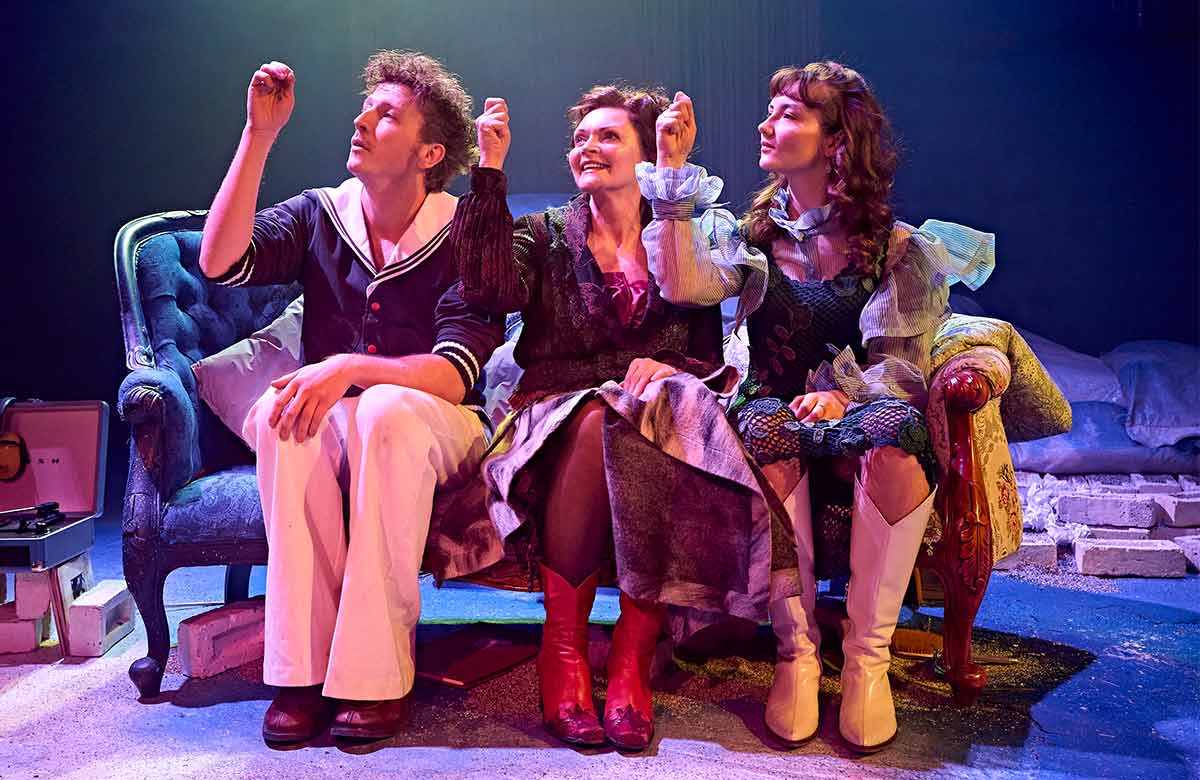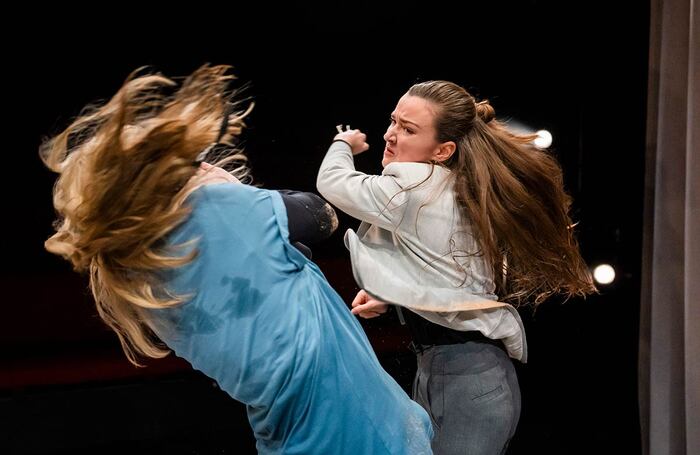
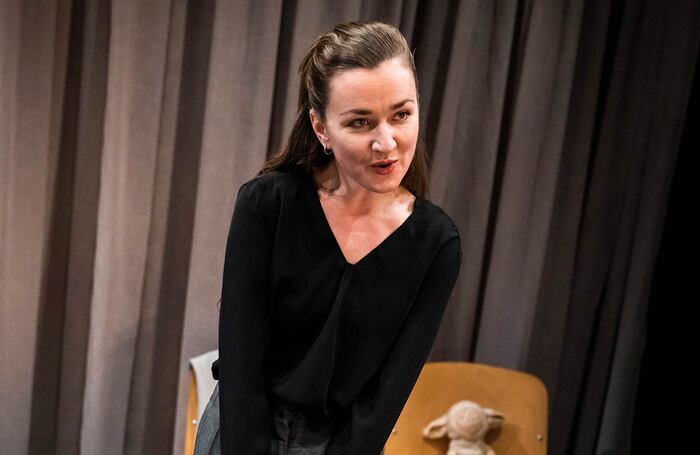
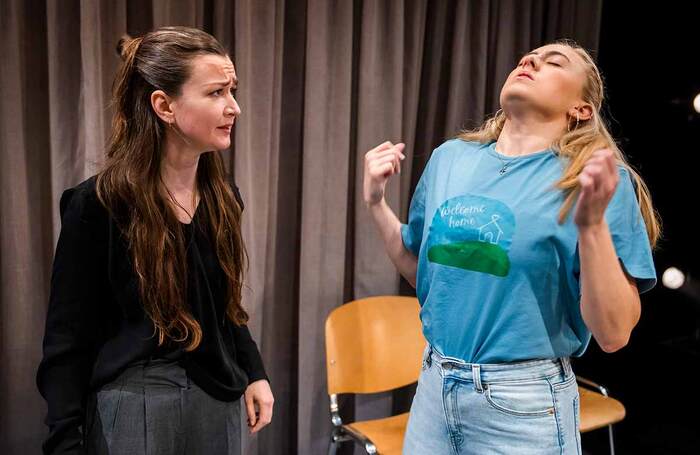
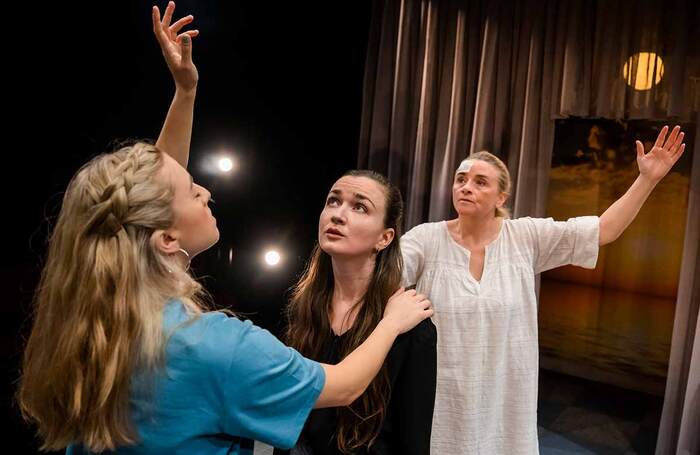




Amy Molloy gives a magnetic central performance in this knotty character piece
With its title hinting ominously at the biblical story of Isaac and his barely averted murder at his father Abraham’s hands, this darkly comic drama by Michael John O’Neill is an intriguing study of a family in crisis. Touching on weighty issues of religious fundamentalism, addiction and coercive control by an abusive father figure, the story takes place in modern-day Northern Ireland. At a remote compound run by an evangelical Christian sect, we encounter two troubled siblings struggling to reconnect and overcome their shared trauma. As 18-year-old Kelly commits herself completely to her new-found faith, estranged older sister Gill reappears, determined to pull her out.
Director Lucy Morrison gives O’Neill’s dense text plenty of space to breathe, letting each new revelation sink in as her performers circle one another. The energy sometimes dips, deadening the otherwise escalating tension. But if the script could be tighter, O’Neill’s characters are richly drawn and fascinatingly flawed. Each carries a different wound from the abuse they’ve survived, each apportions blame to a different parent and each deploys their own unhealthy coping mechanisms.
The show is elevated by some brilliantly focused performances, most notably from Amy Molloy as the fierce, fragile, visibly traumatised Gill. Molloy starred in O’Neill’s 2022 debut monologue This Is Paradise, which covered some of the same tricky themes as this play; here she handles the challenging material with great confidence and commitment. Though now free of her monstrous father’s influence, Gill is emotionally adrift, permanently on her guard after years of grooming. Twitchy and restless, she paces relentlessly, unable to find even a moment’s peace.
Continues...
By contrast, Ruby Campbell’s Kelly is a calm and steady presence, at least until she’s overwhelmed by the frustration, doubt and repressed anger that her sister’s arrival stirs up. While she only appears in the show’s later scenes, Mairead McKinley provides an interesting shift in dynamics as Sarah, an older woman hardened by life’s horrors, yet not bereft of hope or dignity.
Designed by Naomi Dawson, the set is austere, all grey carpets and beige plastic stacking chairs, a large potted plant providing the only splash of colour in the aggressively neutral environment of the sect’s isolated community centre. Beth Duke’s sparse sound design undercuts the grinding conversations with a soft, steady rumble that builds as the exchanges grow more heated. But it’s when Gill is left alone, and intrusive thoughts threaten to overwhelm her, that this low soundscape suddenly erupts into a roaring thunder filled with layered voices, a cacophonous reminder of the guilt and shame that is always ready to overwhelm her.
More Reviews
Recommended for you
More Reviews
Recommended for you
Most Read
Across The Stage this weekYour subscription helps ensure our journalism can continue
Invest in The Stage today with a subscription starting at just £7.99
